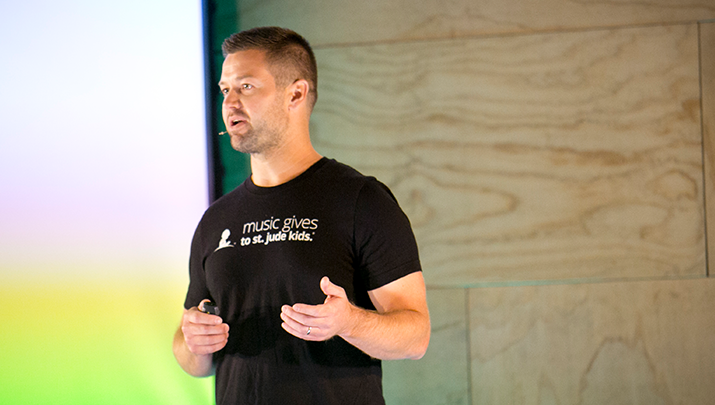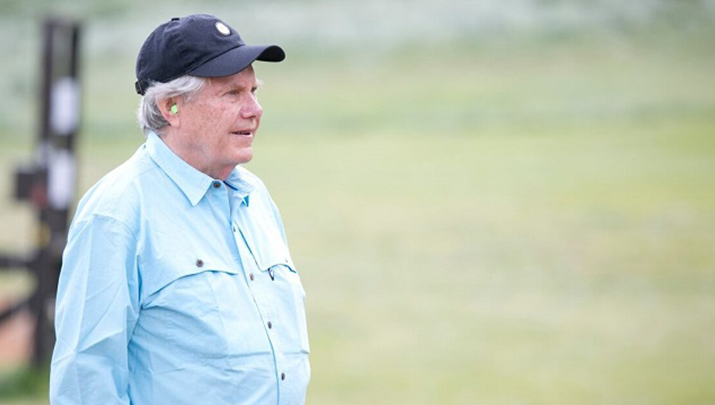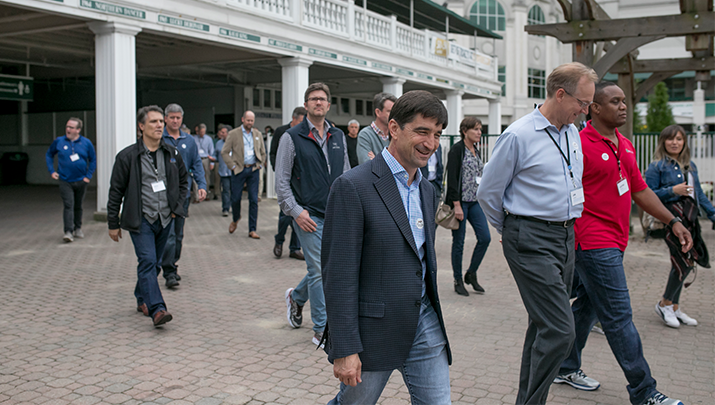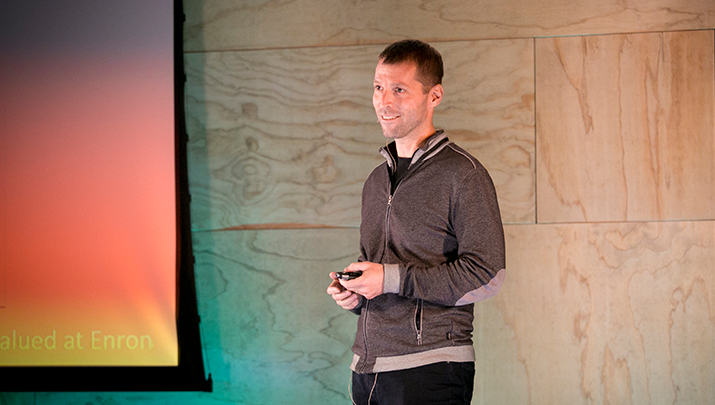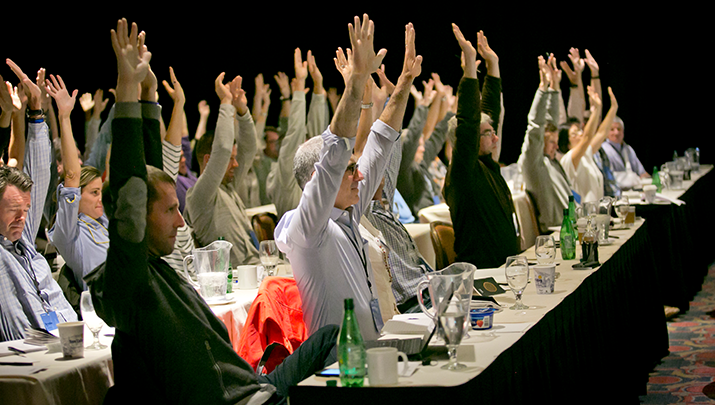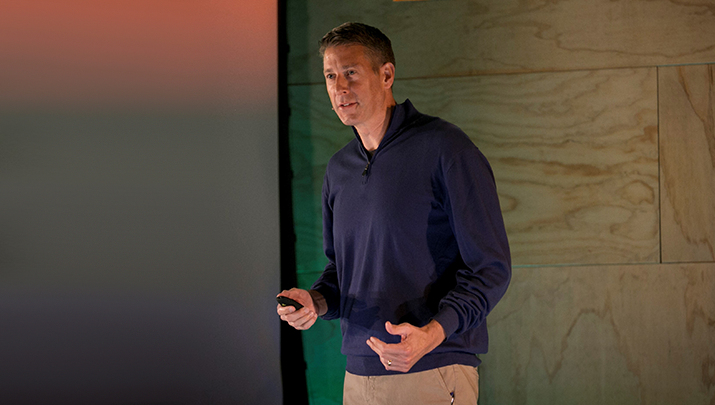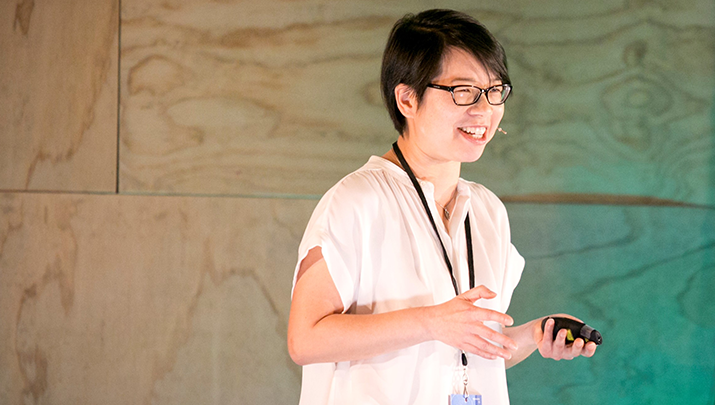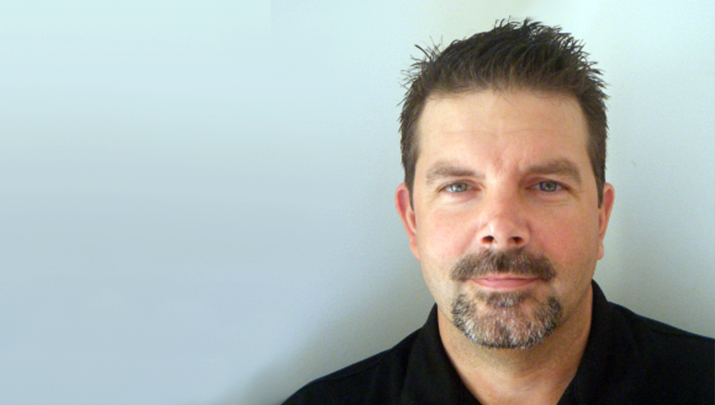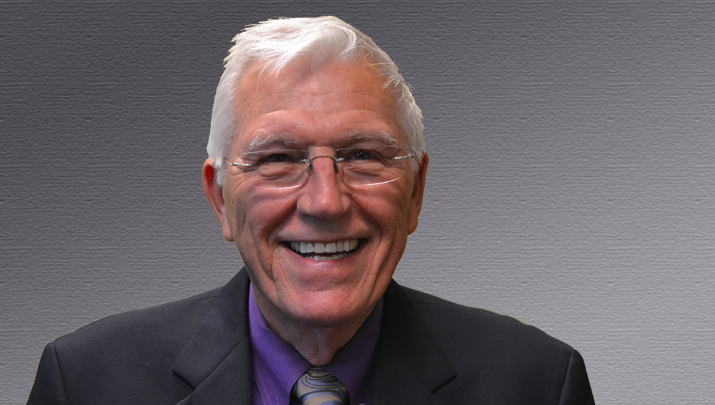Purpose on Purpose
If you’ve ever participated in Warrior Dash or a Firefly Music Festival, you have Joe Reynolds and his team to thank. In 2007, Reynolds started Red Frog Events from his apartment with the goal of delivering amazing experiences to people. While Red Frog does this well, the team is about more than just providing entertainment — it’s a vehicle for making a positive impact on the world. In 2013, Red Frog Events committed to raising $25 million for St. Jude Children’s Research Hospital, and as of 2017 has already achieved over 50 percent of that goal.
In his inspiring and moving talk, Reynolds shares how his commitment to St. Jude has helped drive his business while inspiring in his employees a larger Purpose.
How High-Performance Leaders Achieve Remarkable Results
W. Grant Gregory is the retired chairman of Deloitte & Touche and founder of DoubleClick. His success long preceded, and continued after, DoubleClick’s sale to Google in 2007, which he attributes to the high-performing teams he assembled and led. But how does one learn to identify talent that will thrive and excel? For Gregory, it meant understanding the key traits of the top performers in that particular role, and being absolutely focused on hiring talent with those traits.
In his Tugboat Institute Summit talk, Gregory describes how Don Clifton, his longtime mentor and the creator of StrengthsFinder, helped him adopt principles of positive psychology and strength-based leadership in the identification and development of talent at scale across large and complex organizations.
Stories of Purpose
Having deep Purpose is the true north of Evergreen CEOs. For them, business is beyond just making money for the founders and owners. Though wealth generation may be a long-term byproduct of one’s success, it’s not the reason for being in Evergreen companies. In this candid video, Tugboat Institute members share their guiding Purpose.
Featuring: Rick Sutton, John Keatley, Jim Creel, Bryan Pape, Jim Milgard
Creating a Healthy, High-Performance Culture
For Robert Glazer, the building blocks of company culture are vision, core values and employee alignment. As founder of Acceleration Partners, a client-focused marketing agency, he emphasizes the importance of hiring the right people, treating them with respect, knowing when to invest in them and being aware of employees who “quit and stay.”
In his talk, Glazer shares how he came to realize the importance of a healthy culture, and key tools he and his team use to bring that culture to life.
Scrappy Stories
Pragmatic Innovation is an essential value of Evergreen companies. In this candid video, members share their stories of the most amazing things they’ve accomplished with very limited resources.
Featuring: Don MacAskill, Will Snook, Wynne Odell, Darcey Croft and Dan Kenary.
Reinventing Radio Flyer
Even a legendary, 100-year-old brand like Radio Flyer — the little red wagon that's become an iconic part of the lives of millions of children — needs to work hard to ensure its continued success. “I knew we had all this great stuff about our brand," says Robert Pasin, Radio Flyer's CEO. “But I soon learned that the company was at kind of a crossroads and we have some problems.”
In his Tugboat Institute Summit talk, Pasin shares the origins of his family business and his desire to continue to build upon his family’s brand while developing a culture that fosters creativity and innovation. It’s the company’s values and mission-driven work environment that help fuel Radio Flyer’s continued growth.
How to Build a Bootstrapped Consumer Business
During the 2008 economic downturn, Stella Ma and her business partner, Amy Norman, created a children’s education subscription business called Little Passports. Her passion to make travel more accessible and affordable to all children has led Ma to achieve a $25 million run-rate business. Her Perseverance these past nine years led to a household brand name that continues to innovate with expanded products including digital animation, books and localized goods. In her talk, Ma reveals the five strategies that have helped her consumer-brand company grow profitably without outside capital. Recently, Little Passports was named one of the top 10 best places to work by the San Francisco Business Times.
Give Them Knowledge
"It's metal roofing. It's not the sexiest thing," John Williams says. "But it's really not so much about what you make, it's how you make it." And how Central States Manufacturing — which employs more than 700 people and has retail outlets in Arkansas, Texas, Alabama and Kentucky — makes metal roofing and metal building parts is through a rigorous system of accountability: "We will never sacrifice accountability for financial success."
In this video Williams explains that accountability is achieved in part through CSM's commitment to an Evergreen CEO’s best friend — open-book management, where financial information is freely shared within the company and all employees are empowered to make decisions. It’s a People First strategy that is working for CSM. How does that front-end decision-making work in practice? We'll let Williams explain.
Why We Lost the Game
"I helped lead the company into five out of seven of the most unprofitable years we'd ever experienced," Jenkins Diesel's Joe Jenkins says at the outset of this presentation. At the time, Jenkins was a business newbie fresh out of the Army. So he turned to the legendary business consultant Jack Stack for advice, implementing Stack's principle of open-book management: the idea that when employees and not just management are taught the rules of business, given a clear scoreboard on company performance and provided a stake in the outcome, everyone will contribute to the short term and long term success of the business—in often unexpected, powerful ways.
Alternating hard-earned business advice and homespun wisdom, Jenkins demonstrates in this video the importance of Evergreen values like Perseverance — you've got to be able to take a few hits, and then you've got to learn from them — and People First. Businesses succeed when everyone has a stake.
The Future of Capitalism
For Britnie Turner, Purpose and Profit are intimately tied together without having to sacrifice one for the other.
In her talk, Britnie shares that she had a dream when she was 12 years old about doing mission work in Africa and committed herself to it. She realized that she had to find a way to take her natural talents and create a profitable business in the U.S. first, before turning her attention to Africa. She believed if she could turn around the worst neighborhoods in Nashville, ones with homes occupied by drug addicts, she would learn the skills and business models needed to turn around any neighborhood in the world. At 28, she is well on her way with Aerial, now the second-fastest-growing business in Nashville.
